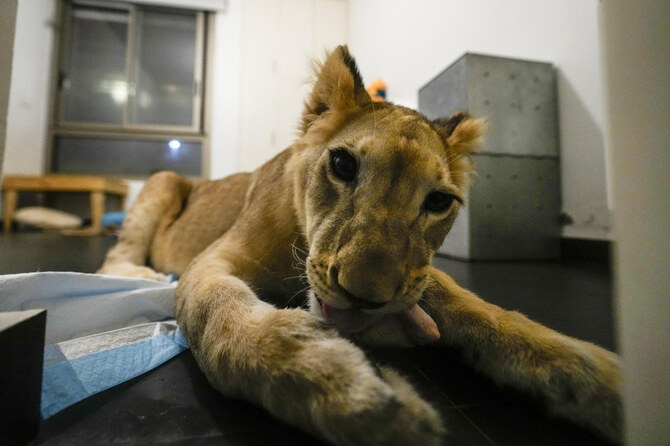BEIRUT: On Monday, a few hours before the arrival of Amos Hochstein, the US mediator in the indirect negotiations to demarcate the maritime borders between Lebanon and Israel, President Michel Aoun confirmed to the UN Special Coordinator in Lebanon Joanna Wronecka that the “Lebanese side will inform Hochstein of a unified stance regarding the proposals to resume these negotiations that preserve Lebanon’s rights.”
Talks between the two neighbors stopped after Israel rejected a Lebanese proposal to consider Line 29 as a negotiating line, and after the Lebanese rejected the Israeli Line 1 and Hof Line proposals.
Wronecka expressed the willingness of the UN to contribute to resuming the negotiations, praising the “wisdom of President Aoun and his role in this critical period of the history of Lebanon.”
The president told a delegation of lawmakers: “(Israel) is acting contrary to international laws and resolutions, taking advantage of the silence of the international community regarding its violations of the UN Security Council resolutions.”
Aoun denied “any connection between the demarcation negotiations and the issue of leasing gas and electricity from Egypt and Jordan, or the negotiations with the International Monetary Fund.”
The president added that “drilling in Block 1 stopped due to unconvincing reasons presented by the drilling company,” noting that “there were international pressures on it to prevent it from continuing to drill.”
He said he would lead the negotiations, and “upon reaching an agreement the Council of Ministers will have to approve it and refer it to Parliament according to the procedures, which is something that did not occur with Line 29.”
Reports circulating in Lebanon suggest that Hochstein had already sent a proposal to the Lebanese government last March to demarcate the maritime borders based on drawing Line 23 in a zigzag in order to give Lebanon the whole of the Qana field.
The delegation Aoun addressed had asked him to swiftly amend decree 6433, issued in 2011, which adopted Line 23 as the base to start negotiations with Israel to demarcate the maritime borders, and to send it to the international agencies according to the rules, in order to fix Line 29 as the border line with Israel, giving Lebanon an additional area of 1,430 square kilometers according to a study by the Lebanese Army.
Lebanon invited Hochstein to Beirut against the backdrop of the arrival of the Energean liquified natural gas production unit to Karish field, in the disputed maritime area between Lebanon and Israel.
Lebanon wishes to “continue the indirect Lebanese-Israeli negotiations to demarcate the maritime borders as soon as possible, in order to prevent any escalation that could jeopardize stability in the region.”
Gen. Joseph Aoun confirmed on Monday during a meeting with officers of the General Staff that “the army’s mission regarding demarcation of the maritime borders was concluded upon the end of its technical mission,” adding that he stands “behind the political authority in any decision that it takes.”
On Sunday, Chief of Staff of the Israel Defense Force Aviv Kochavi threatened to create “a border belt of fire on the border villages of south Lebanon and massive destruction in the whole country if war breaks out.”
This declaration came against the backdrop of a hardened stance by Hezbollah over the past few days, based over fears Israel might start drilling in the disputed Karish field.
Coinciding with the arrival of the US mediator to Lebanon, UNIFIL spokesman Andrea Tenenti confirmed that a UNIFIL patrol was intercepted on Sunday by a group of villagers.
Tenenti said that “our patrols always perform their duties without interceptions or threats except in rare cases, and this is not the first time that our forces become subject to an aggression attempt.”
The interception, which is the fourth this year for UNIFIL units, targeted a Spanish patrol that was carrying out a routine activity in its zone of deployment in the eastern sector, south of the Litani river.




























